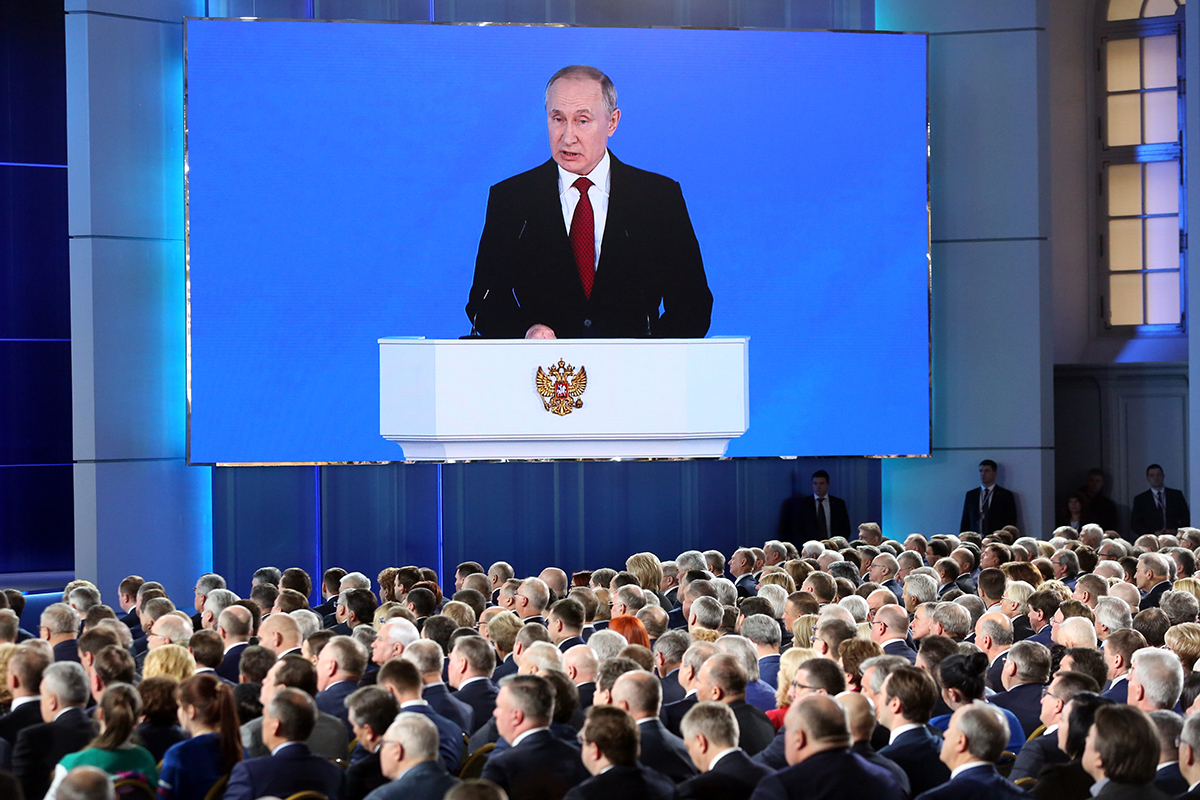Nobody expected anything special from Vladimir Putin's ordinary address to the Federal Assembly. The Russian President, however, decided to surprise everyone by announcing a series of amendments to the Russian Constitution. Shortly after the speech, the Russian government – headed by Prime Minister Dmitry Medvedev – resigned. Apostrophe tried to curb the wave of Russian news in order uncover what has really happened.
A new Russian Constitution
While the whole world awaits the "2024 transit", Putin decided to intercept the initiative without further delay. In his speech, the Russian President announced a number of changes to Russia’s Constitution, the main idea of which is to limit the President's powers in favor of the State Duma.
If the proposed amendments are adopted at a referendum (and they are to be adopted), the President won’t be able to get elected more than twice. In addition, in order to be nominated as a candidate, one will have to have lived in Russia for at least 25 years (currently 10). The candidates that have ever had citizenship or a residence permit of another country will be barred from entering the race.
 Vladimir Putin and Dmitry Medvedev
Vladimir Putin and Dmitry Medvedev
In his message, Putin also suggested that the State Duma should be given the right to appoint a Prime Minister and members of the government. According to Putin, the President would not be able to veto candidates, yet he would be able to dismiss the head of government. At the same time, the President shall remain the commander-in-chief and head of the Armed Forces. Senators, in turn, would have the right to dismiss judges of the Constitutional and Supreme Courts on the President’s proposal. All senior officials shall not have a second citizenship. Moreover, the power of governors would be significantly increased.
Putin also expressed an extremely odious demand that the Russian Constitution should prevail over the requirements of international law.
According to Putin's constitutional draft, the Federation Council would also receive a number of powers, becoming a full-fledged constitutional institution, and the Constitutional Court will finally be able to have an influence.
Medvedev and Kadyrov to resign
Putin's speech calling for changes received an immediate reaction from the Russian government. Prime Minister Medvedev suggested that the best change would be to change the government and, without even warning the ministers, he announced the resignation of the entire government. Putin, however, did not want to lose such a valuable official, so he generously offered Medvedev the post of a deputy chairman of the Security Council.
Medvedev explained such a sudden resignation, which has already managed to bring down the ruble, with the constitutional changes. As he stated, this "will bring significant changes not only to a number of articles of the constitution but to the balance of power as a whole".
The new Russian Prime Minister was named mere hours after Medvedev’s resignation. Mikhail Mishustin, head of the Russian Federal Tax System, will now assume the position. His candidacy was proposed... by Putin, of course.
 Ramzan Kadyrov had "temporarily" resigned
Ramzan Kadyrov had "temporarily" resigned
Medvedev's resignation was not the only one to make the headlines. Whether by chance or not, the odious head of Chechnya, Ramzan Kadyrov, had "temporarily" resigned as well. Interestingly, his resignation statement dates back to January 13, yet the announcement came only now.
The transition from Putin to Putin
The wave of Putin's constitutional "initiatives" and the resignation of Russia's top officials prove one thing - the “transition" of power process in Russia has started. The long-awaited “transition” will be of a from-Putin-to-Putin kind. After all, the restriction of the president's powers in the government’s favor, as well as a ban for someone with second citizenship (the lion's share of Russian elites) to assume Russia’s highest post, speak of one thing. The president will become a symbolic figure, while the true power will still concentrate in Putin’s hands – just as from 2008 to 2012.
 Russia's new Prime Minister Mikhail Mishustin
Russia's new Prime Minister Mikhail Mishustin
In the meantime, a real political storm has begun in Russia, and its development will illustrate whether Putin would be able to conduct all his political manipulations without serious losses.


